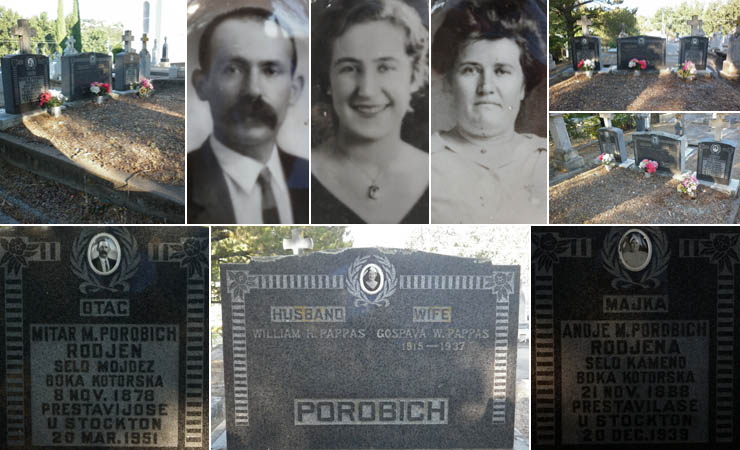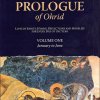Mitar 1878 - 1951, William H. ?, Gospava W. 1915 - 1937, Andje M. 1888 - 1939
Prvi spomenik
OTAC
MITAR M. POROBICH
RODJEN
SELO MOJDEZ
BOKA KOTORSKA
8 NOV 1878
PRESTAVIOSE
U STOCKTON
20 MAR. 1951
Drugi spomenik
HUSBAND
WILLIAM H. PAPPAS
WIFE
GOSPAVA W. PAPPAS
1915 - 1937
MAJKA
ANDJE M. POROBICH
RODJENA
SELO KAMENO
BOKA KOTORSKA
21. NOV. 1888
PRESTAVILASE
U STOCKTON
20. DEC. 1939





